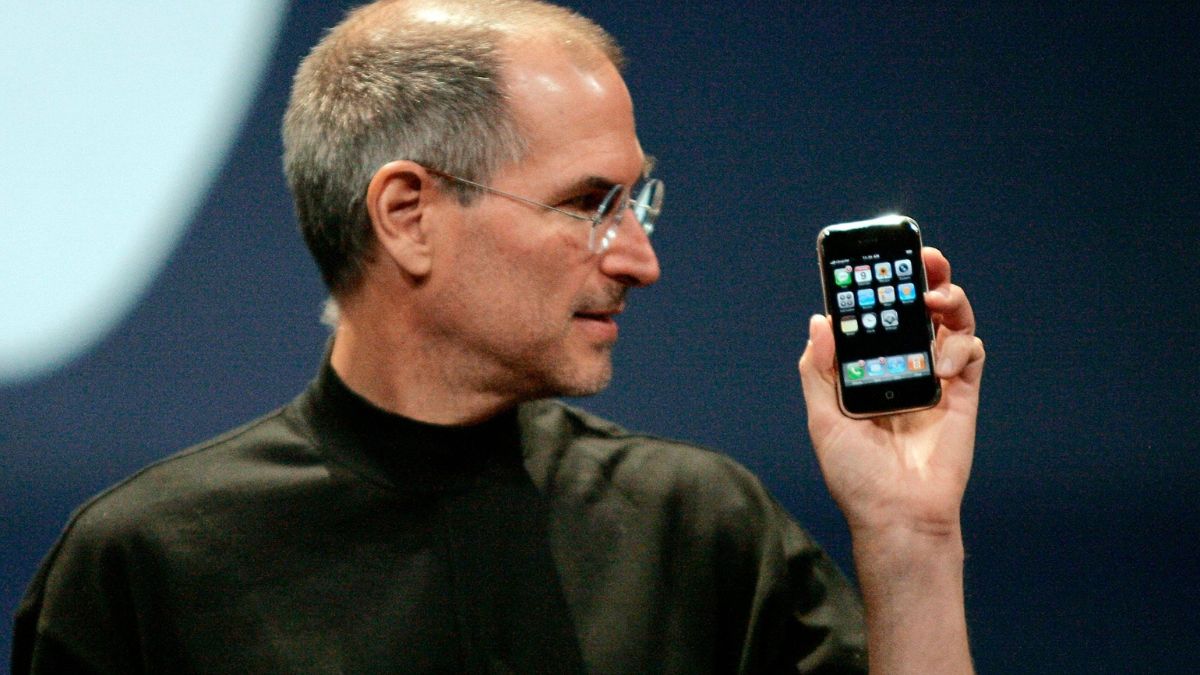History Today: ple launched its first iPhone and began the smartphone era
)
The iPhone at 17: A Retrospective on a Revolutionary Device
Seventeen years ago, on June 29, 2007, Apple Inc. unleashed the iPhone upon the world, an event that irrevocably altered the trajectory of technology and ushered in the modern smartphone era. More than just a phone, the iPhone represented a paradigm shift in how people interact with information, communicate, and consume entertainment. Its impact resonates even today, shaping the technological landscape and influencing countless other devices and platforms.
From Concept to Cultural Phenomenon
Before the iPhone, smartphones were largely clunky devices dominated by physical keyboards and stylus-based interfaces. Apple's vision was different: a sleek, pocket-sized computer with a revolutionary multi-touch display. This bold approach, coupled with a user-friendly operating system, proved to be a winning formula. The initial launch saw long queues outside Apple stores, indicative of the pent-up demand for a device that promised to simplify and enhance digital life.
The original iPhone was not without its limitations. It lacked 3G connectivity, a feature already present in some competing devices, and its app ecosystem was non-existent at launch. However, its innovative design and intuitive interface quickly captivated consumers. The introduction of the App Store in 2008 cemented the iPhone's dominance, transforming it from a communication device into a versatile platform capable of performing a vast array of tasks.
A Catalyst for Change: The Smartphone Revolution
The iPhone's influence extends far beyond Apple's balance sheet. It sparked a fierce competition among tech companies, driving innovation in hardware, software, and mobile services. Android, Google's open-source mobile operating system, emerged as a direct competitor, further accelerating the adoption of smartphones globally. This competition benefited consumers, leading to more affordable devices and a wider range of features.
The rise of the smartphone also had profound societal implications. It facilitated the proliferation of social media, enabling instant communication and global connectivity. It empowered individuals with unprecedented access to information, education, and entertainment. Simultaneously, it raised concerns about privacy, data security, and the potential for digital addiction.
Expert Analysis: The Enduring Legacy
"The iPhone wasn't just about a single device; it was about creating a new ecosystem," explains Dr. Anya Sharma, a technology historian at the University of Delhi. "Apple understood the importance of integrating hardware, software, and services seamlessly. This holistic approach set a new standard for the industry and continues to be a key differentiator for Apple today. The App Store, in particular, was a game-changer, fostering a vibrant developer community and transforming the iPhone into a platform for innovation."
Furthermore, the iPhone's impact can be viewed through the lens of accessibility. "While initially a premium product, the iPhone popularized the concept of a personal computer in your pocket," notes Raj Patel, a technology analyst with a global consulting firm. "This accessibility, coupled with the increasing affordability of smartphones in general, has democratized access to information and communication, particularly in developing countries. However, the digital divide remains a significant challenge, and addressing it requires concerted efforts to ensure equitable access to technology and digital literacy."
The iPhone in a Global Context
The iPhone's launch coincided with a period of rapid globalization and technological advancement. The early 2000s saw the rise of the internet, the proliferation of mobile phones, and the increasing interconnectedness of the world. The iPhone capitalized on these trends, becoming a symbol of modernity and a tool for global communication. Its success also contributed to the rise of Silicon Valley as a global hub for technology innovation.
However, the iPhone's impact is not without its controversies. Concerns about labor practices in Apple's supply chain, environmental impact, and the company's tax avoidance strategies have drawn criticism. These issues highlight the complex ethical and social responsibilities that come with being a global technology giant.
Looking Ahead: The Future of Smartphones
As the iPhone enters its eighteenth year, the smartphone market is evolving rapidly. New technologies such as artificial intelligence, augmented reality, and 5G connectivity are poised to transform the way we interact with our devices. While the iPhone remains a dominant player, it faces increasing competition from other manufacturers and the emergence of new form factors, such as foldable phones and wearable devices.
The legacy of the iPhone lies not only in its technological innovations but also in its profound impact on society. It has reshaped the way we communicate, work, learn, and entertain ourselves. As technology continues to evolve, the lessons learned from the iPhone's success will undoubtedly continue to shape the future of mobile computing.
Originally sourced from: Firstpost
